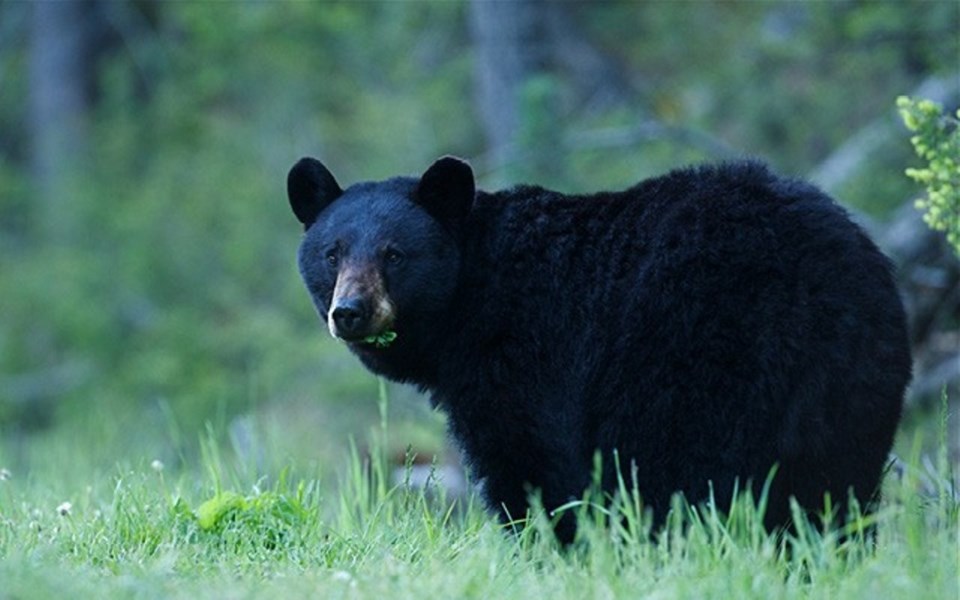Conservation officers have killed a black bear that was slated for destruction after injuring a woman earlier this month.
The Whistler RCMP responded to a report of a bear eating compost in the Alpine area on the morning of Friday, April 6. Police managed to locate the bear, which reportedly charged an officer at the scene. Conservation officers shot and killed the bear later that day.
Although officers did issue a $230 fine to an individual in Alpine for failing to secure their garbage, Sgt. Simon Gravel with the Conservation Officer Service (COS) said that, due to the animal’s level of food conditioning and aggressive behaviour, it was already slated for destruction prior to accessing the compost.
The bear was ear-tagged, indicating a previous history of conflict. Gravel confirmed it was the same bear that had been spotted in recent days accessing non-natural food in the Bayshores and Nordic areas and had swatted a woman’s leg on the evening of April 1, causing minor injuries.
Believed to be between 15 and 20 years old, Gravel said the male bear had managed to avoid conflict with humans for much of its life. It was last captured in 2016 and relocated from Whistler Village, “a no-go zone for black bears,” Gravel noted.
“For the most part he had managed to stay away from conflict, but for some reason, this year he was very early out of the den seeking some non-natural food, which definitely led to some concerning behaviour.”
Last week, authorities warned of a second, smaller black bear that had accessed non-natural food and was reported charging a dog in the White Gold area. Gravel, who has not personally witnessed the bear, is now not so sure if it’s different from the adult male bear that was killed last week.
“Assessing and evaluating the size of the bear can be difficult. Because it’s so early in the season, it just makes me question if we’re talking about the same bear here,” Gravel said, noting how bears will naturally be smaller at this time of year after a winter of hibernation. “It is possible that there is also a smaller bear that’s been seeking food, but I can’t confirm that at this point.”
Nonetheless, with more of Whistler’s bear population expected to emerge from their dens in the coming days and weeks, Gravel is stressing the importance of the public doing its part to keep wildlife safe.
“It is very surprising to see that there are still so many attractants out there—bears are definitely able to find them,” he noted.
Residents are urged not to intervene if a bear is seen accessing attractants, but to call the Conservation Officer Service’s RAPP line at 1-877-952-7277. Bylaw violations in the event of attractants being left unsecured can be reported to the municipality at 604-935-8280 during business hours.
For more on this story, pick up Thursday's edition of Pique




